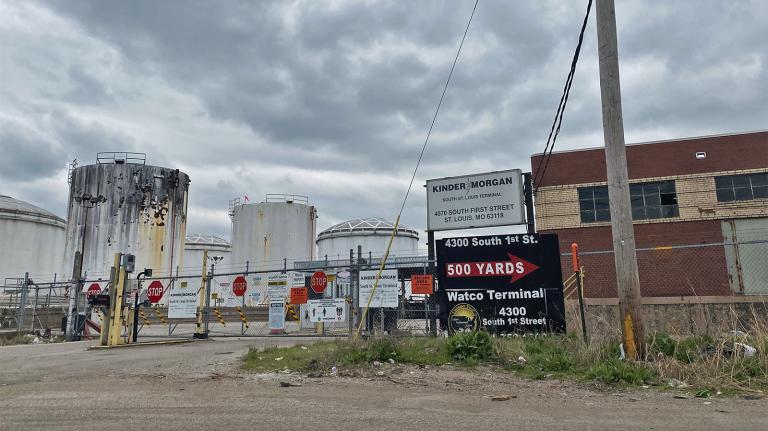The U.S. Environmental Protection Agency is looking into complaints that Louisiana’s health and environmental agencies discriminated against Black residents when reviewing air pollution permits.
The two complaints, filed in January on behalf of community groups and the Sierra Club, accuse the Louisiana Department of Environmental Quality, or LDEQ, of allowing several facilities – including a chemical complex, a plastics plant, and a proposed grain terminal – to operate without updated permits and release dangerous levels of air pollution, The Times-Picayune/The New Orleans Advocate reported. One complaint also contends that the Louisiana Department of Health failed to provide residents living near the chemical complex, Denka Performance Elastomer, in St. John the Baptist Parish with information about the health effects of chloroprene, a byproduct of neoprene rubber production which the EPA says is “likely to be carcinogenic to humans.”
The complaints allege that these plants have discharged “excessive levels” of carcinogenic chemicals in an industrial corridor with some of the nation’s highest cancer risk and a majority-Black population. According to the EPA’s EJScreen tool, nearly every census tract between Baton Rouge and New Orleans — an area environmentalists call “Cancer Alley” — has a higher cancer risk from toxic air pollution than 95 percent of the country. The Denka plant, in particular, is located just half a mile away from Fifth Ward Elementary School, where more than 90 percent of students are Black.
“They are busing Black children from all over the parish into that school, and this plant is poisoning them,” Robert Taylor, whose community group the Concerned Citizens of St. John filed one of the complaints, told a local radio station. “When are they going to do something?”
The EPA will investigate permit approvals for at least seven current and two proposed projects in the area, according to the Associated Press. These facilities are accused of emitting or planning to emit high concentrations of fine particulate matter, volatile organic compounds, and carcinogenic chemicals including chloroprene, ethylene oxide benzene, formaldehyde, and ethylene oxide. In doing so, the EPA will determine whether the agencies violated Title VI of the 1964 Civil Rights Act, which prevents programs receiving federal funding from discriminating on the basis of “race, color, or national origin.”
The Louisiana agencies acknowledged the complaint and said they will work with the EPA during the investigation. “We believe LDEQ’s permit process, prescribed by state law, is impartial and unbiased,” Gregory Langley, press secretary for the agency, told The Times-Picayune/The New Orleans Advocate. “LDEQ handles all issues with a fair and equitable approach.”
A spokesperson for Denka denied the accusations in the complaints, according to the newspaper, pointing to Louisiana Tumor Registry results that show no widespread elevated cancer rates in St. John the Baptist Parish compared to the state average.
The EPA’s response comes as the Biden administration ramps up enforcement of polluting industries and promotes its commitment to environmental justice. Administrator Michael Regan visited Cancer Alley in November on a tour of environmental justice communities, where low-income residents of color face disproportionate impacts from issues like flooding and toxic pollution, and promised more aggressive monitoring of air pollution in industrial areas across the South.
And this isn’t the first time that the Biden EPA has used its powers to investigate alleged discrimination in state environmental agencies. Last year, the EPA found that the Missouri Department of Natural Resources violated Title VI of the 1964 Civil Rights Act, after environmental and civil rights groups challenged the state agency’s decision to extend an operating permit for a fuel transport site located near a low-income community of color in St. Louis.
“We are grateful that the EPA is taking environmental racism seriously; it has real-world consequences that the Black community in St. John the Baptist Parish has been dealing with for far too long,” Damon Hewitt, president and executive director of the Lawyers’ Committee for Civil Rights Under Law, which filed one of the complaints against the Louisiana agencies, said in a statement to E&E News. “The government must protect its citizens, and this investigation is the first step.”




